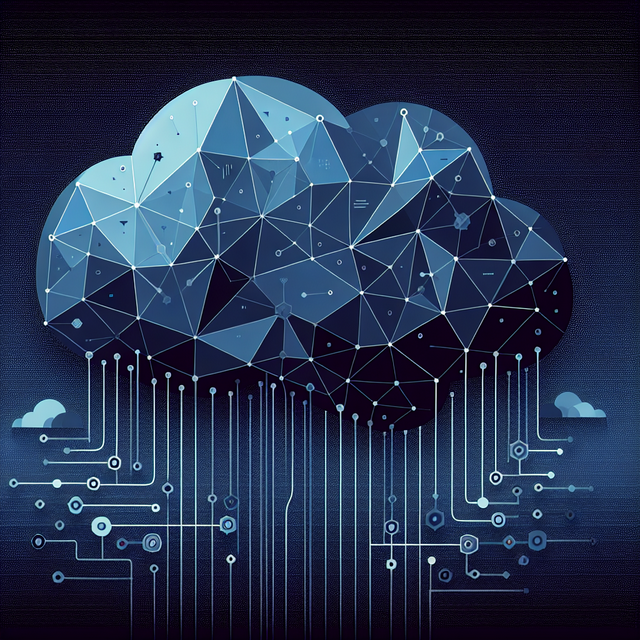
AI-Driven DevOps: Revolutionizing Enterprise Delivery
In today’s rapidly evolving technological landscape, enterprises are constantly seeking ways to streamline their software delivery processes, enhance efficiency, and maintain a competitive edge. Enter AI-driven DevOps – a game-changing approach that’s revolutionizing how businesses develop, deploy, and maintain software at scale. This article explores the transformative impact of artificial intelligence on DevOps practices and how it’s reshaping enterprise software delivery.
Table of Contents
- The Convergence of AI and DevOps
- Key Benefits of AI-Driven DevOps
- AI-Powered Tools Transforming DevOps
- Challenges and Considerations
- Implementing AI-Driven DevOps in Your Enterprise
- The Future of AI in DevOps
The Convergence of AI and DevOps
DevOps, the practice of combining software development (Dev) with IT operations (Ops), has already revolutionized how enterprises approach software delivery. By breaking down silos and fostering collaboration, DevOps has significantly improved deployment frequency and reduced time-to-market. Now, with the integration of AI, we’re witnessing a new era of efficiency and innovation in the software development lifecycle.
AI-driven DevOps leverages machine learning algorithms, natural language processing, and predictive analytics to automate complex tasks, provide intelligent insights, and enhance decision-making throughout the DevOps pipeline. This convergence is not just about automation; it’s about creating smarter, more adaptive systems that can learn and improve over time.
Key Benefits of AI-Driven DevOps
The integration of AI into DevOps practices offers numerous advantages for enterprise software delivery:
-
Enhanced Automation: AI can automate more complex and nuanced tasks that previously required human intervention, freeing up developers and operations teams to focus on higher-value activities.
-
Predictive Analytics: Machine learning models can analyze historical data to predict potential issues before they occur, enabling proactive problem-solving and reducing downtime.
-
Improved Code Quality: AI-powered code analysis tools can detect bugs, security vulnerabilities, and performance issues early in the development process, ensuring higher quality releases.
-
Faster Incident Response: AI can quickly identify the root cause of production issues and even suggest or implement fixes, dramatically reducing mean time to resolution (MTTR).
-
Optimized Resource Allocation: AI algorithms can analyze usage patterns and workload demands to optimize resource allocation, improving efficiency and reducing costs.
-
Personalized Developer Experience: AI can provide tailored recommendations and insights to individual developers, enhancing productivity and code quality.
AI-Powered Tools Transforming DevOps
Several AI-powered tools are making significant impacts across the DevOps lifecycle:
-
Intelligent Monitoring and Alerting: Tools like Datadog and New Relic use AI to provide more accurate anomaly detection and reduce alert fatigue.
-
Automated Code Review: Platforms such as AI Code Metrics offer advanced AI code analysis and optimization, helping teams improve code quality and developer productivity.
-
Chatbots for Operations: AI-powered chatbots can handle routine operational tasks, answer queries, and even assist in troubleshooting.
-
Predictive Testing: AI can generate test cases, predict which areas of code are most likely to contain bugs, and optimize test execution.
-
Release Management: Machine learning algorithms can analyze release patterns and suggest optimal deployment strategies.
Challenges and Considerations
While the benefits of AI-driven DevOps are substantial, enterprises must also navigate several challenges:
-
Data Quality and Quantity: AI models require large amounts of high-quality data to function effectively. Ensuring data integrity and availability is crucial.
-
Skills Gap: Implementing AI-driven DevOps requires a workforce skilled in both DevOps practices and AI technologies.
-
Ethical Considerations: As AI becomes more involved in decision-making, organizations must address ethical concerns and ensure transparency.
-
Integration with Existing Systems: Seamlessly integrating AI tools with existing DevOps processes and legacy systems can be complex.
-
Security and Compliance: In regulated industries, ensuring AI-driven processes comply with security and regulatory requirements is paramount.
Implementing AI-Driven DevOps in Your Enterprise
To successfully implement AI-driven DevOps, consider the following steps:
-
Assess Your Current DevOps Maturity: Understand your existing processes and identify areas where AI can provide the most significant impact.
-
Start Small and Scale: Begin with pilot projects in specific areas of your DevOps pipeline before expanding.
-
Invest in Data Infrastructure: Ensure you have the necessary data collection and management systems in place to support AI initiatives.
-
Upskill Your Team: Provide training and resources to help your team adapt to AI-driven tools and processes.
-
Choose the Right Tools: Select AI-powered DevOps tools that integrate well with your existing ecosystem and align with your specific needs.
-
Monitor and Iterate: Continuously measure the impact of AI on your DevOps processes and refine your approach based on outcomes.
The Future of AI in DevOps
As AI technologies continue to evolve, we can expect even more transformative applications in DevOps:
-
Autonomous Operations: AI systems may eventually be capable of self-healing and self-optimizing, requiring minimal human intervention.
-
Natural Language Interfaces: Developers might interact with DevOps tools using natural language, further streamlining workflows.
-
Advanced Predictive Capabilities: AI models will become increasingly accurate in predicting system behavior, user needs, and market trends.
-
Cross-Functional AI Agents: AI assistants could work across development, operations, and business teams, facilitating better alignment and collaboration.
The integration of AI into DevOps practices represents a significant leap forward in enterprise software delivery. By embracing AI-driven DevOps, organizations can achieve unprecedented levels of efficiency, reliability, and innovation in their software development processes.
As the field continues to evolve, platforms like AI Code Metrics will play a crucial role in helping enterprises measure, manage, and optimize their AI-assisted development processes. By providing strategic AI impact metrics, intelligent insights, and tools for ensuring compliance and security, such platforms enable organizations to fully leverage the power of AI in their DevOps practices.
The future of enterprise software delivery is intelligent, automated, and adaptive. Are you ready to revolutionize your DevOps with AI?
To learn more about how AI Code Metrics can help your organization optimize its AI-driven DevOps processes, visit our website or schedule a demo today.